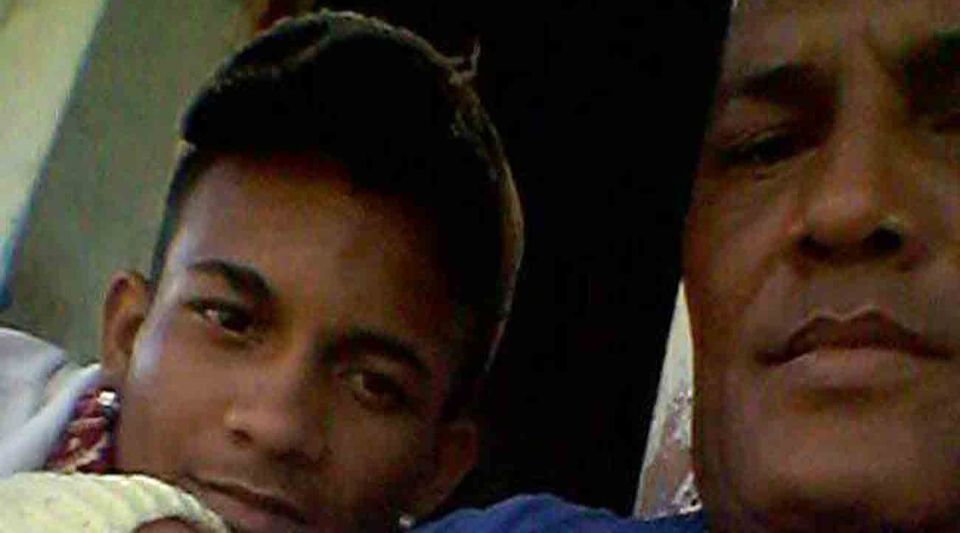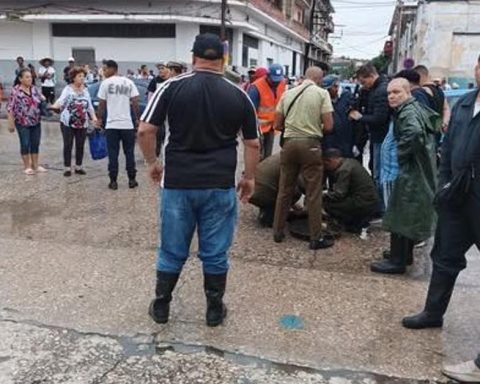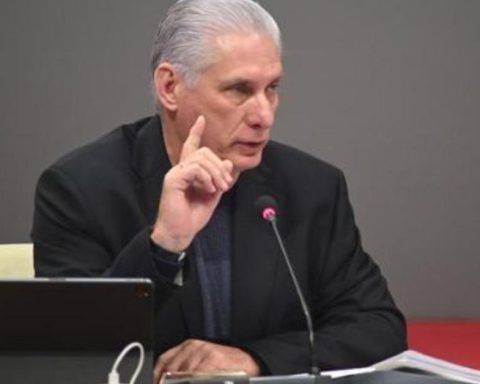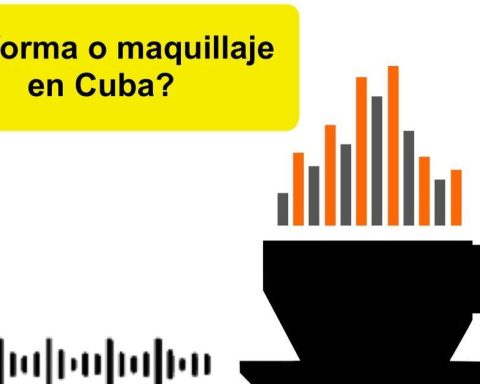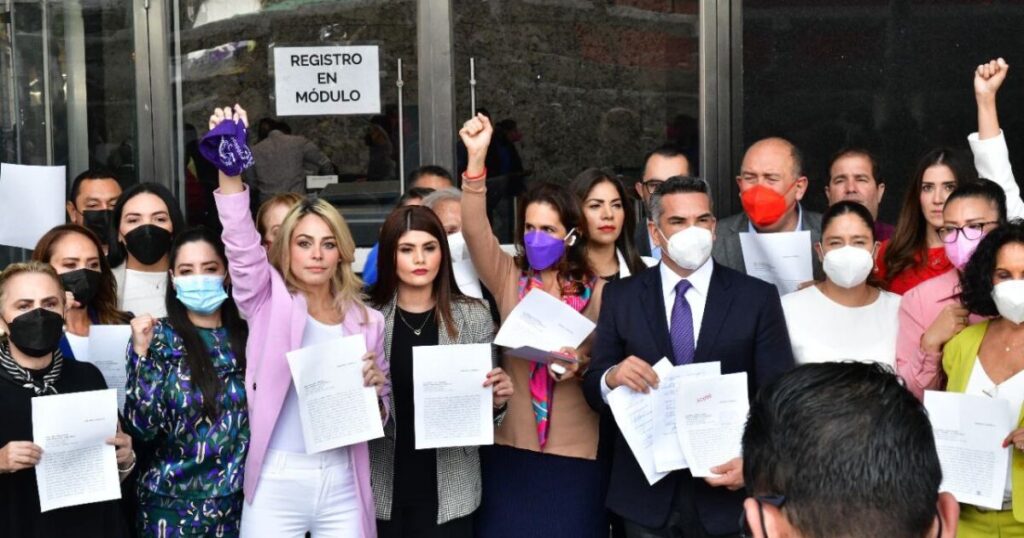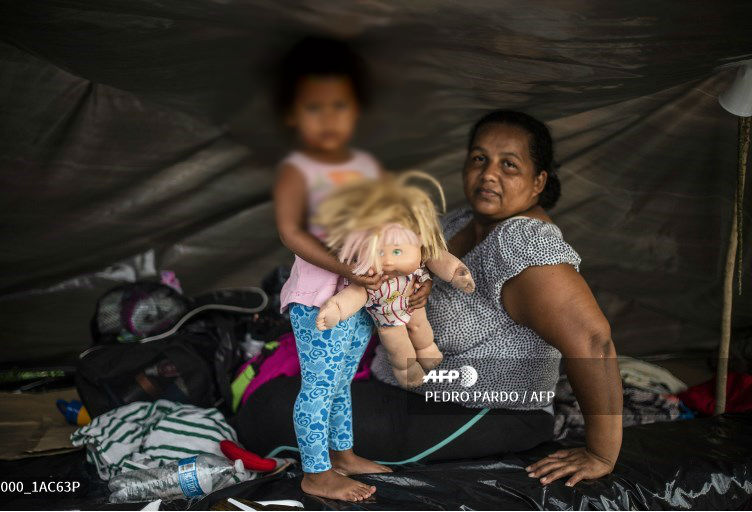When Zinédine Zidane Batista Álvarez was born, 17 years ago, his own father, Yosvany, wrote his name, that of the renowned French footballer, on a piece of paper, so that they would not make a mistake in the certification. “Then it turned out that he liked baseball more than football.”
Yosvany Batista, 43, speaks with 14ymedio with bitterness and without fear. He has been devastated since his son’s life was taken from him on July 1 in the El Condado neighborhood, in Santa Clara, where the family lives.
The images, which immediately spread through social networks, are brutal. The young man lies on the ground, handcuffed and with blood oozing from a gash in his thigh. A policeman approaches and kicks him in the abdomen. Then he fires a second shot into the chest, and the body stops moving.
Zidane had been experiencing an intense neighborhood conflict for months in which the authorities had hardly mediated, despite the complaints made by the family. His father is blunt: the uniformed men who should have protected him ended up killing him.
“That same morning, July 1, my son and I went to the 5th police station because we had an appointment,” recalls Batista. The family was immersed in a dispute that had escalated in recent months, with occupants who broke into the house where the young man, his wife and his children had sneaked in some time before. “It is a house that has been empty for five years because the owner left for Spain and died there,” explains the man.
The family was immersed in a dispute that had escalated in recent months, with some occupants who broke into the house where the young man, his wife and children had sneaked in some time before
They spent two hours at the police station with the prosecutor who was handling the case. Upon returning, the man lay down for a while and his son stayed behind playing video games. “Around half past two in the afternoon we got the news that that other family, with whom we had already had many problems, had attacked the cousin of my son’s wife, who was in the La Latina store,” he says. .
They immediately returned to the police unit to report this new attack, but they were told that they could not do anything “against these people who entered the house one day when they took advantage of the fact that my son went to take one of the girls from his wife to the hospital, and after that they didn’t want to go out anymore.
Faced with what she denounces as inaction by the authorities, she urged her son to resolve the conflict on their own. “I told the occupants to get out of the house and that this problem had to be solved and we stopped in front of 217 Rodolfo Valderas Street, in El Condado,” he details with the Batista address.
“After about 20 minutes waiting for the other family,” he recalls, they started down the road in another direction, when, suddenly, “they hit us from behind”: “They threw stones at us and we also responded with stones. I received a flat blow with a machete and a stone on the forearm. When the police arrived, more or less an hour after the conflict began, everything was more of a verbal fight.”
Batista insists: “The police did not try to calm the situation, but rather intensified the violence. When they arrived, they immediately went upstairs to beat me. My son was already leaving, but he sees me on the ground and comes back.”
”At about half past two in the afternoon we got the news that that other family, with whom we had already had many problems, had attacked the cousin of my son’s wife, who was in the La Latina store”
The policemen who pounced on Yosvany himself to hit him took the young Zidane out of sight. “I only heard him shout that no one was going to hit me and then I felt the shot. It was the second, because I didn’t hear the first one. bleeding as they kept beating him.
Yosvany tried to help him, carrying him, but he couldn’t: “He was already almost dead.” The forensic report confirmed after one shot entered through the thigh and the other through the upper left area of the thorax. “They took him to the hospital because people started yelling at them to help him. His wife’s cousin was the one who put a tourniquet on his leg.”
“I started chasing the policeman who had shot him and he fired two shots at my feet. Luckily, none of them hit me.” At that moment, says Yosvany, his youngest son, 11 years old, crossed his mind, and that was what prevented him from killing the agent: “Now I would not be doing this interview, but in the cemetery.”
Batista considers that, since he was already wounded and could not flee, the second shot was not necessary. “When he was already on the ground, handcuffed, they shot him again. That’s the image you see in the video. They finish him off on the ground, without having any chance of defending himself. I saw the blood on his pants, but I I thought it was a small wound.”
The man continues: “The second shot lodged in his lung and by the time he got to the hospital and they tried to revive him, he was already dead. My wife didn’t have the courage to dress the body when it was handed over to her for the funeral. Now we’ve been told that There is an investigation. I am going to make statements this week to see if we can prosecute the police officer who killed him.”
Zidane, recalls his father, was born on Calle Martí, in El Condado Norte, “he liked horses and he was a good son.” He loved animals and raised pigeons. Both Yosvany and his wife, who have been married for 19 years and have five grandchildren, are pastors of the Apostolic and Prophetic Ministry.
“I only heard him shout that no one was going to hit me and then I felt the shot. It was the second, because I didn’t hear the first one.”
“When she and I met we had housing problems and we occupied an empty Medical Office, we lived there for almost ten years,” he details. “Later we moved to Camajuaní as shepherds. Zidane was asthmatic, also very intelligent, although he did not like school very much. He had a great memory for historical events.”
“When Zidane met his partner, she was already pregnant and he gave the girl his last name. He adored that girl,” he says. “They have told many lies about my son, but most of what they say about alleged crimes is false. He was detained because he witnessed the July 11 protests and they fined him 2,000 pesos for violating sanitary measures.”
On the day of the historic demonstrations, Batista assures, Zidane “went to bathe in the river and then to get some yogurt for the girl. They stayed as spectators looking at the people who were protesting and for that he and his wife were fined. They arrested him, mistreated him, beat him up and only released him after seven days. From then on he had to go sign in at the fifth police unit.”
Although the father insists that Zidane was surprised by the protests on the road, “I told the police that if he shouted something, at least he had the courage to express what he felt, because Cuban youth have no choice at all.” It has no possibility of developing. Parents spend a lot of work to be able to support them.”
The pain, now, is unbearable for him, who could not go to his son’s funeral because he was detained at the time after the fight. “I haven’t been able to go to the cemetery because I don’t have the courage to see his grave.”
________________________
Collaborate with our work:
The team of 14ymedio is committed to doing serious journalism that reflects the reality of deep Cuba. Thank you for joining us on this long road. We invite you to continue supporting us, but this time becoming a member of our journal. Together we can continue transforming journalism in Cuba.
